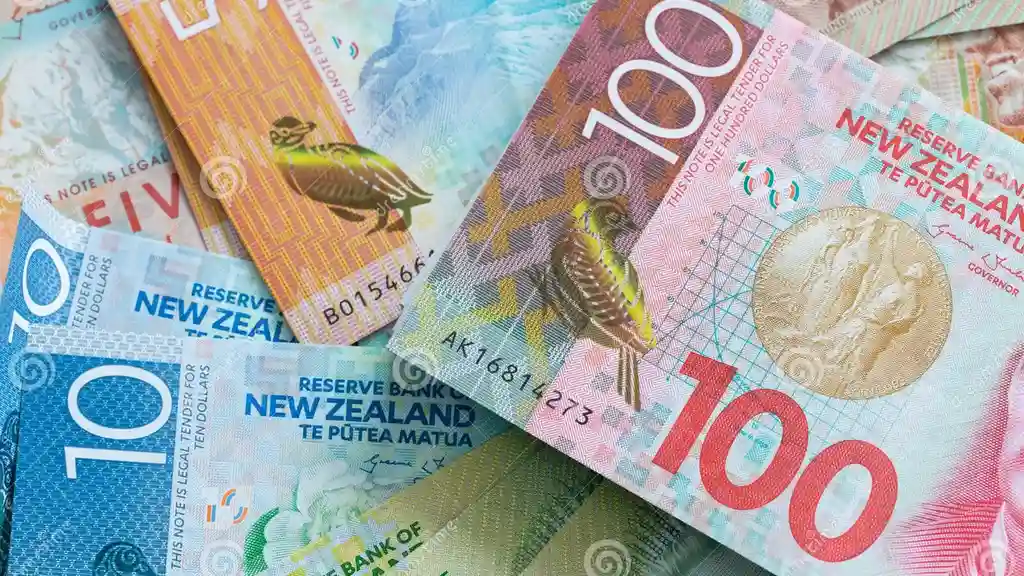Dealing with Jet Lag: Tips for US Travelers
Sample meta description.

Understanding Jet Lag Causes and Symptoms for American Travelers
Hey there, fellow American traveler! So, you're planning a trip to the land of the long white cloud, New Zealand? Awesome choice! But before you start dreaming of hobbits and stunning landscapes, let's talk about the elephant in the room – jet lag. It's that pesky feeling of being completely out of sync after crossing multiple time zones, and trust me, going from the US to New Zealand is a doozy.
Jet lag, scientifically known as desynchronosis, happens when your body's internal clock (your circadian rhythm) is disrupted. This clock regulates things like sleep-wake cycles, hormone release, and even body temperature. When you travel across time zones, your body's clock gets thrown off because it's trying to adjust to a new schedule that's drastically different from what it's used to. Think of it like trying to force a square peg into a round hole – your body just isn't happy.
The severity of jet lag depends on a few factors, including the number of time zones crossed, the direction of travel (eastward travel tends to be worse), and your individual susceptibility. Some people barely feel a thing, while others are completely knocked out for days. Common symptoms include:
- Sleep disturbances: Insomnia (difficulty falling asleep or staying asleep), excessive daytime sleepiness, and generally feeling tired and groggy.
- Digestive issues: Loss of appetite, nausea, constipation, or diarrhea. Your gut biome gets a little confused too!
- Cognitive impairment: Difficulty concentrating, memory problems, and feeling disoriented. Think brain fog, but on steroids.
- Mood changes: Irritability, anxiety, and even mild depression. It's hard to be excited about exploring when you feel awful.
- Physical symptoms: Headaches, muscle aches, and general malaise. Your body just aches all over.
The good news is, jet lag is temporary! And there are plenty of things you can do to minimize its effects and get back to enjoying your trip as quickly as possible. Let's dive into some practical tips.
Pre-Trip Preparation Minimizing Jet Lag Before You Fly
The battle against jet lag actually starts *before* you even step on the plane. A little pre-planning can make a huge difference. Here's what you should do:
- Gradually adjust your sleep schedule: A few days before your trip, start shifting your bedtime and wake-up time closer to the New Zealand time zone. Even 30 minutes a day can help. If you're flying eastward (which is generally worse for jet lag), try going to bed earlier. If you're flying westward, try going to bed later. Download a jet lag app for personalized recommendations!
- Optimize your sleep environment: Make sure your bedroom is dark, quiet, and cool. Use blackout curtains, earplugs, and a white noise machine if needed. A comfortable mattress and pillows are also essential. Think of it as creating your own personal sleep sanctuary.
- Hydrate, hydrate, hydrate: Dehydration can worsen jet lag symptoms. Start drinking plenty of water a few days before your trip and continue throughout your flight. Avoid excessive alcohol and caffeine, as they can disrupt your sleep patterns. Pack a reusable water bottle and refill it regularly.
- Be mindful of your diet: Eat healthy, balanced meals leading up to your trip. Avoid heavy, greasy foods that can make you feel sluggish. Consider incorporating foods rich in melatonin, such as cherries, bananas, and oats, into your diet.
- Exercise regularly: Physical activity can help regulate your sleep-wake cycle and boost your overall energy levels. Try to get some exercise each day leading up to your trip, but avoid strenuous workouts close to bedtime.
In-Flight Strategies Combatting Jet Lag During Your Flight
The flight itself is a crucial battleground in the war against jet lag. Here's how to make the most of your time in the air:
- Set your watch to New Zealand time as soon as you board: This helps you mentally adjust to the new time zone. Think of it as a psychological trick to get your brain on board.
- Stay hydrated: Airplane air is notoriously dry, so continue drinking plenty of water. Avoid alcohol and excessive caffeine. Opt for water, herbal tea, or juice.
- Move around: Sitting still for long periods can worsen jet lag symptoms. Get up and walk around the cabin every few hours to improve circulation and prevent stiffness. Do some simple stretches in your seat. Your legs will thank you.
- Sleep (or try to): If it's nighttime in New Zealand, try to sleep on the plane. Use earplugs, an eye mask, and a travel pillow to create a comfortable sleep environment. Consider using a sleep aid, such as melatonin or a natural sleep supplement, but talk to your doctor first. Download a sleep app with relaxing sounds or meditations.
- Avoid screens before sleep: The blue light emitted from electronic devices can interfere with melatonin production and make it harder to fall asleep. Read a book, listen to a podcast, or meditate instead. Consider a blue light filter app for your devices.
- Eat strategically: If it's mealtime in New Zealand, eat a light, healthy meal. Avoid heavy, greasy foods that can make you feel sluggish. Pack your own healthy snacks to avoid relying on unhealthy airplane food.
Post-Arrival Recovery Tips Adapting to New Zealand Time
You've landed in New Zealand! Now the real work begins. Here's how to adjust to the new time zone as quickly as possible:
- Embrace the daylight: Daylight is your best friend when it comes to resetting your circadian rhythm. Spend as much time outdoors as possible during the day, especially in the morning. Go for a walk, explore a park, or simply sit outside and soak up the sun.
- Stick to a regular sleep schedule: Go to bed and wake up at the same time each day, even if you feel tired. Avoid napping during the day, as this can disrupt your sleep patterns. If you must nap, limit it to 20-30 minutes and do it in the early afternoon.
- Adjust your mealtimes: Eat meals at the same time each day, even if you're not hungry. This helps your body adjust to the new time zone. Avoid eating heavy meals close to bedtime.
- Stay active: Continue to exercise regularly, but avoid strenuous workouts close to bedtime. A gentle walk or yoga session can help you relax and unwind.
- Consider melatonin supplements: Melatonin is a hormone that helps regulate sleep. Taking a small dose of melatonin (0.5-3 mg) an hour or two before bedtime can help you fall asleep faster and stay asleep longer. Talk to your doctor before taking melatonin, especially if you have any underlying health conditions.
- Be patient: It takes time for your body to adjust to a new time zone. Don't get discouraged if you don't feel 100% right away. Give yourself a few days to recover.
Product Recommendations to Help Beat Jet Lag
Okay, let's get down to the nitty-gritty. Here are some specific products that can help you conquer jet lag, along with their uses, comparisons, and price points (prices are approximate and may vary):
Sleep Aids
Melatonin Supplements
Use: Helps regulate sleep-wake cycles. Take 0.5-3mg an hour or two before bedtime.
Comparisons:
- Natrol Melatonin: Popular, affordable, and readily available. Comes in various strengths and forms (tablets, gummies).
- Nature Made Melatonin: Trusted brand, USP verified for quality.
- Time-Release Melatonin: Releases melatonin gradually throughout the night, which can be helpful for staying asleep.
Price: $5-$15 for a bottle of 60-120 tablets.
Natural Sleep Supplements
Use: Alternatives to melatonin, often containing ingredients like valerian root, chamomile, and L-theanine. Promote relaxation and sleep.
Comparisons:
- Olly Sleep: Gummy vitamins with melatonin, L-theanine, and chamomile. Tasty and easy to take.
- Gaia Herbs SleepThru: Liquid capsules with valerian root, passionflower, and lemon balm. Fast-acting and effective.
- Moon Juice Dream Dust: Powder blend with adaptogens, herbs, and minerals. Can be added to beverages.
Price: $15-$30 for a supply of 30-60 servings.
Hydration Helpers
Reusable Water Bottle
Use: Stay hydrated on the go. Choose a bottle with a wide mouth for easy filling and cleaning.
Comparisons:
- Hydro Flask: Insulated stainless steel, keeps water cold for hours. Durable and stylish.
- Nalgene: Durable, BPA-free plastic. Lightweight and leakproof.
- Brita Water Filter Bottle: Filters water as you drink. Reduces chlorine and other impurities.
Price: $20-$50.
Electrolyte Tablets or Powder
Use: Replenish electrolytes lost through sweating and dehydration. Add to water for a refreshing boost.
Comparisons:
- Nuun Sport: Sugar-free electrolyte tablets with added vitamins and minerals. Available in a variety of flavors.
- Liquid I.V.: Powder packets with electrolytes, vitamins, and glucose. Provides rapid hydration.
- LMNT Recharge: Electrolyte drink mix with no sugar, artificial colors, or flavors. Salty and satisfying.
Price: $20-$30 for a box of 10-30 servings.
Comfort and Relaxation
Eye Mask
Use: Block out light for better sleep on the plane and in your hotel room.
Comparisons:
- Alaska Bear Natural Silk Sleep Mask: Soft and comfortable, blocks out light effectively.
- MZOO Sleep Eye Mask: Contoured design, doesn't put pressure on your eyes.
- Bucky 40 Blinks Ultralight Sleep Mask: Lightweight and breathable, folds up easily for travel.
Price: $10-$20.
Noise-Canceling Headphones or Earplugs
Use: Block out noise for better sleep and relaxation.
Comparisons:
- Bose QuietComfort 45 Headphones: Excellent noise cancellation, comfortable to wear for long periods.
- Sony WH-1000XM5 Headphones: Top-rated noise cancellation, great sound quality.
- Mack's Ultra Soft Foam Earplugs: Affordable and effective, block out a significant amount of noise.
Price: Headphones: $200-$400; Earplugs: $5-$10 for a pack of 50.
Travel Pillow
Use: Provide neck support for comfortable sleep on the plane.
Comparisons:
- Cabeau Evolution S3 Travel Pillow: Memory foam, adjustable straps, and a raised side design for neck support.
- Trtl Pillow: Unique scarf-like design, provides excellent neck support.
- BCOZZY Chin Supporting Travel Pillow: Wraps around your neck for 360-degree support.
Price: $20-$40.
Enjoy Your Trip!
Okay, that's a lot of information! But trust me, taking these steps will significantly reduce the impact of jet lag and help you enjoy your New Zealand adventure to the fullest. Remember, be patient with yourself, listen to your body, and don't be afraid to adjust your plans as needed. Happy travels!
:max_bytes(150000):strip_icc()/277019-baked-pork-chops-with-cream-of-mushroom-soup-DDMFS-beauty-4x3-BG-7505-5762b731cf30447d9cbbbbbf387beafa.jpg)






